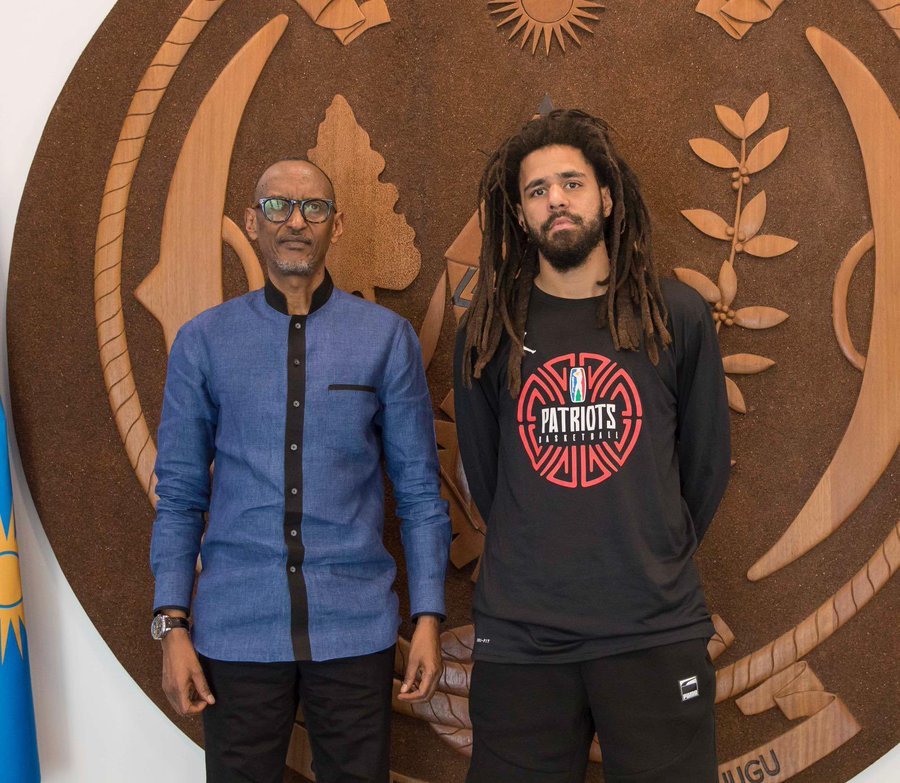Rebranding Rwanda: A case study in branding for Global Recognition
Over the past few decades, Rwanda has transformed its international image from a nation marked by the 1994 genocide to a beacon of economic growth, stability, and innovation. This remarkable journey is largely attributed to strategic marketing and nation branding efforts that have repositioned Rwanda on the global stage. This blog explores the multifaceted strategies Rwanda has employed to market itself, focusing on tourism, investment, sports partnerships, and cultural diplomacy.
J. Cole, the renowned rapper and basketball enthusiast, has made notable contributions to the promotion of basketball in Rwanda, particularly through his involvement with the Rwanda national team. His commitment to the sport was underscored by his participation in the 2021 Basketball Africa League, where he played for the Patriots BBC, showcasing his dedication to merging music and sports. By leveraging his platform, J. Cole has helped raise awareness and interest in Rwandan basketball, inspiring young athletes in the region. His presence in the league not only highlights the growing global recognition of African basketball but also serves as a motivational force for aspiring players.
1. Visionary Development Plans: Vision 2020 and Vision 2050
Central to Rwanda's transformation are its long-term development strategies: Vision 2020 and Vision 2050. Launched in 2000, Vision 2020 aimed to transition Rwanda from a low-income, agrarian economy to a knowledge-based, middle-income country by 2020. The plan emphasized good governance, infrastructure development, and human capital investment. Building on this foundation, Vision 2050, introduced in December 2020, aspires to elevate Rwanda to upper-middle-income status by 2035 and high-income status by 2050. This strategy focuses on economic growth, prosperity, and enhancing the quality of life for all Rwandans.
2. Tourism Promotion: The 'Visit Rwanda' Campaign
Rwanda has aggressively promoted itself as a premier tourist destination through the 'Visit Rwanda' campaign. This initiative includes high-profile partnerships with international sports teams:
Arsenal FC: In 2018, Rwanda became the official tourism partner of Arsenal Football Club, with the 'Visit Rwanda' logo featured on players' sleeves. This partnership was extended in 2021, reflecting its success in boosting Rwanda's visibility.
Paris Saint-Germain (PSG): In 2019, Rwanda signed a three-year deal with PSG, promoting 'Visit Rwanda' on the team's training kits and women's jerseys. This collaboration was extended in 2023, further enhancing Rwanda's presence in European markets.
FC Bayern Munich: In 2023, Rwanda entered a five-year partnership with Bayern Munich, focusing on football development and tourism promotion.
These partnerships have significantly increased Rwanda's global visibility, positioning it as a vibrant and attractive destination.
3. Hosting International Events
Rwanda has positioned itself as a hub for international conferences and events, leveraging its safety, infrastructure, and strategic location:
Kigali Convention Centre: This state-of-the-art facility has hosted numerous international conferences, including the African Union Summit and the World Economic Forum on Africa, showcasing Rwanda's capacity to host large-scale events.
Commonwealth Heads of Government Meeting (CHOGM): In 2022, Rwanda hosted CHOGM, bringing together leaders from across the Commonwealth and highlighting Rwanda's role on the global stage.
4. Cultural Diplomacy and Soft Power
Rwanda has utilized cultural diplomacy to reshape its image:
Film and Media: The country has supported film festivals and media productions that portray its culture and progress, contributing to a more nuanced global perception.
Arts and Crafts: Promotion of traditional crafts and contemporary art has showcased Rwanda's rich cultural heritage, appealing to international audiences and tourists.
5. Economic Reforms and Investment Promotion
Rwanda has implemented significant economic reforms to attract foreign investment:
Ease of Doing Business: The Rwanda Development Board (RDB) has streamlined business registration processes, making it easier for investors to establish operations.
Special Economic Zones: Establishment of zones with tax incentives has attracted manufacturing and service industries, boosting economic growth.
6. Leveraging Technology and Innovation
Rwanda has branded itself as a technology and innovation hub:
Smart Africa Initiative: As a founding member, Rwanda aims to drive ICT development across the continent, positioning itself as a leader in digital transformation.
Kigali Innovation City: This project seeks to attract technology companies and startups, fostering innovation and entrepreneurship.
Conclusion
Rwanda's strategic marketing efforts have been instrumental in transforming its global image. Through visionary development plans, tourism promotion, international partnerships, cultural diplomacy, economic reforms, and a focus on technology, Rwanda has repositioned itself as a dynamic and forward-looking nation. These initiatives not only attract tourists and investors but also inspire other countries aiming to rebrand and redefine their place in the global community.

